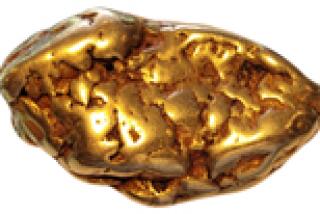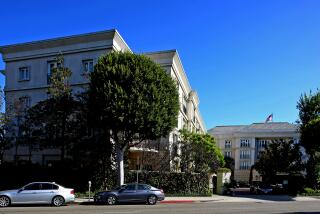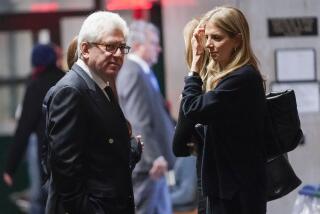Trial begins in tussle over giant emerald
The 840-pound emerald became his, Anthony Thomas says, when he forked over $60,000 to a pair of Brazilian miners back in 2001.
He may never have physically received the behemoth, but the proof was on a piece of paper filled out at a hotel party, since destroyed in a house fire. He didn’t bother notarizing documents or memorializing agreements, the San Jose businessman says — that’s just the way the Brazilians did business.
Nine years later, Thomas stands among at least half a dozen men claiming ownership of the giant stone, known as the Bahia Emerald. Thomas took the stand Friday in the first day of a trial in the legal dispute over the gem, one of the largest of its kind, valued at one point at $372 million.
“Mr. Thomas is the only person who has ever paid a cent for the Bahia Emerald,” his attorney, Jeffrey Baruh, told Los Angeles County Superior Court Judge John Kronstadt. The terms under which his client bought the stone were “very straightforward,” he argued.
Attorneys for the others claiming ownership of the emerald contended that Thomas’ story was ludicrous and inconsistent.
“His story is inherently unbelievable,” attorney Steven Haney told the judge, saying that Thomas was simply trying to “throw his hat in the ring.” Haney represents a man who footed the bill for the emerald to be shipped to the United States.
Attorney Browne Greene, who represents a group of investors who say the stone became theirs through business deals, said Thomas’ credibility had been “significantly impeached” in deposition testimony. He questioned Thomas’ contention that the bill of sale was “mysteriously lost in a mysterious fire.”
Thomas’ is the first claim Kronstadt will weigh. After deciding whether Thomas has rights to the emerald, he will hear evidence from other parties claiming ownership. In the meantime, the giant gem sits in an evidence locker of the Los Angeles County Sheriff’s Department, which took possession of it after it was reported stolen in late 2008.
Thomas, who made his money in the construction business, said in a deposition that he first heard of the emerald on a trip to Brazil, where he was buying a different emerald, one about 50 pounds. At the time, he thought that emerald was the largest in the world, he said.
But when he got there, the Brazilians told him they had something even bigger. They took him to see it at a carport somewhere in Sao Paolo, where he took photos with his arms around the stone. Thomas said he agreed to pay $60,000 for it.
“There was no bartering back and forth on what the price was,” he said. “They said this is what they wanted for it, and I agreed to it and that was it.”
After he returned to the United States, he wired the money to a bank in Florida, then went back to Brazil, where he signed a document labeled “bill of sale” with the Brazilians. The emerald was to be shipped to him in San Jose, but the people who were supposed to arrange it told him it was stolen, Thomas testified.
He also testified that he told the Santa Clara County district attorney’s office about the emerald, but was told there was nothing it could do because the gem was outside its jurisdiction.
Attorneys seized on the years that passed between Thomas’ alleged purchase and his involvement in the Los Angeles lawsuit.
“From 2001 to 2009, he essentially sits on his sofa and hopes the emerald appears,” Haney said.
Outside court, one of the investors claiming ownership accused Thomas of “clouding up” the title to the stone.
“We needed to put it through laundry,” Idaho-based businessman Kit Morrison said. “Unfortunately, this court is the laundry.”
The trial is expected to resume next month.
More to Read
Sign up for Essential California
The most important California stories and recommendations in your inbox every morning.
You may occasionally receive promotional content from the Los Angeles Times.










